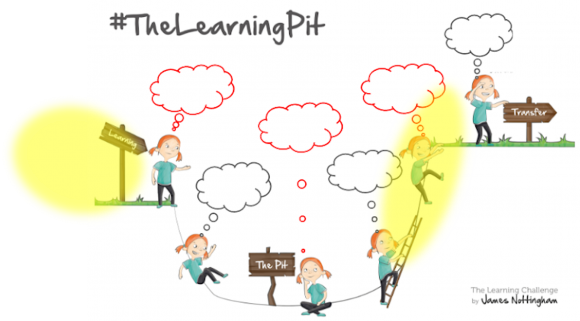There is always room for learning. At our OneSchool National Conference Sarah Martin, Foundation Principal of Stonefields School spoke twice at the event. First on building change momentum, enabling collaborative high functioning teams, future visioning and second, on learning in a building with no classrooms. In the second presentation, I jotted down the term agentic learning, even though because I didn’t know what it meant, it perked my interest. The half-term break giving me the opportunity to investigate fully.
The word agentic is described as an individual’s power to control his or her own goals actions and destiny. It stems from the word agency; the capacity, condition, or state of acting or of exerting power.
A little more research connected agentic learning to Psychologist Albert Bandura (he who needs no introduction) and associated with self-efficacy. Bandura later examined the role of agency and motivation, coining the term Agentic, in which people are viewed as self-organizing, proactive, self-reflecting and self-regulated.
Agentic learning then, is defined by self-directed actions, aimed at personal growth and development based on self-chosen learning goals. Within this context, students initiate actions of their own volition that drive their learning. As yet, I have not found any outline of the role of others: teachers or other students.
In their 2011 paper, Reeve & Tseng identify four domains of engagement that influence motivation and behavior.
- Behavioral Engagement – On-task attention and concentration, high effort and high task persistence)
- Emotional Engagement – Presence of task-facilitating emotions and the absence of task-withdrawing emotions
- Cognitive Engagement – Sophisticated, deep, and personalized learning strategies, conceptual understanding rather than surface knowledge and self-regulatory strategies
- Agentic Engagement – Proactive, intentional, and constructive contribution to the flow of the learning activity and enriching the learning activity rather than passively receiving it as a given
Understanding these domains of engagement, how individuals engage in these domains, and how they interact or integrate into the learning environment are foundational to creating the conditions for Agentic Learning to emerge. Connect agentic learning with Jon Stolk’s advocacy for “supporting autonomy” and I am starting to unravel and deepen my thinking on the role of the teacher within an agentic or Self-Directed Learning environment [or garage.]
Jon Stolk would have us consider how project-based, interdisciplinary courses can be designed that invite students to take control of their learning, grapple with complex systems, engage with each other and the world in new ways, and emerge as confident, agile, self-directed learners.
Agency is an ambitious goal in its own right, in preparing students for career and life (possibly at the expense of other educational goals, though potentially in support of them also), and as the building blocks that in and of themselves lead to deeper learning.
As our organisation explores the employment of “The Learning Pit” and refines our understanding of Self-Directed Learning – I continue to be interested in two specific points in learning cycle and the associated role of teacher. The first, in planning for autonomy the second, the tussle between supporting students out of, and pulling them back into, the pit (construct).

Subsequently, more questions are constructed; whether learning “looks and feels” differently at points in a students careers, across and within various curriculum areas, the importance of novice and expert distinctions…
As for the curriculum, I had clipped and stored a reflection from educator Seymour Papert
At best, schools teach one-billionth of one percent of what knowledge exists in the universe, yet we quibble endlessly over what one-billionth of one percent is important.
If this is, even remotely accurate, would education be more interesting if students explored the one-billionth of one percent that is important to them, with real tools, real choice and real trust? Even if that means learning that the boat you built – sunk.


